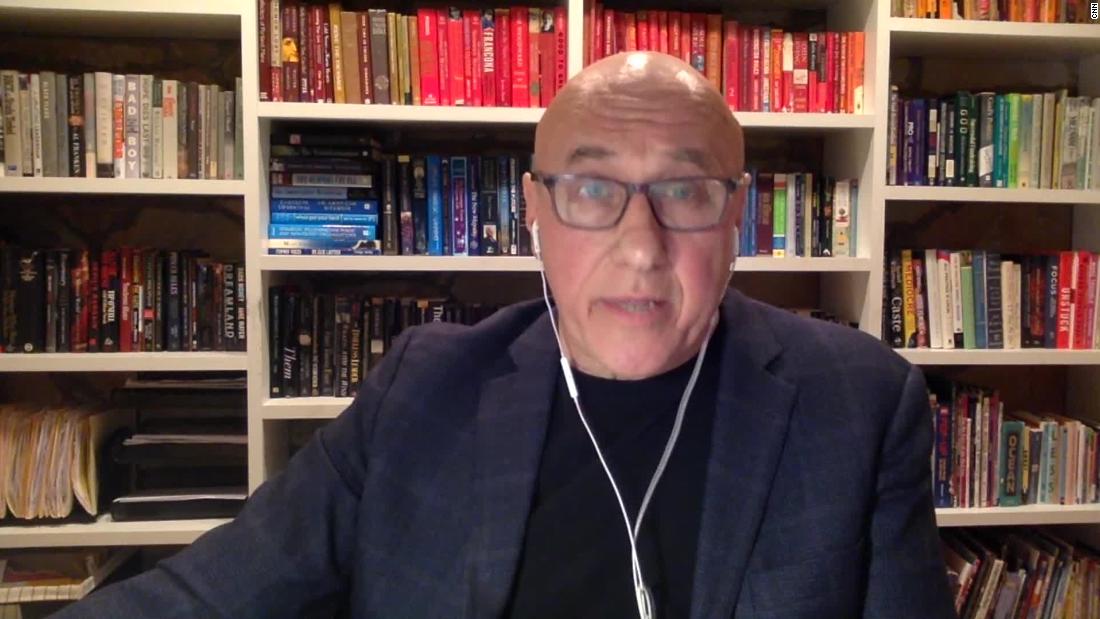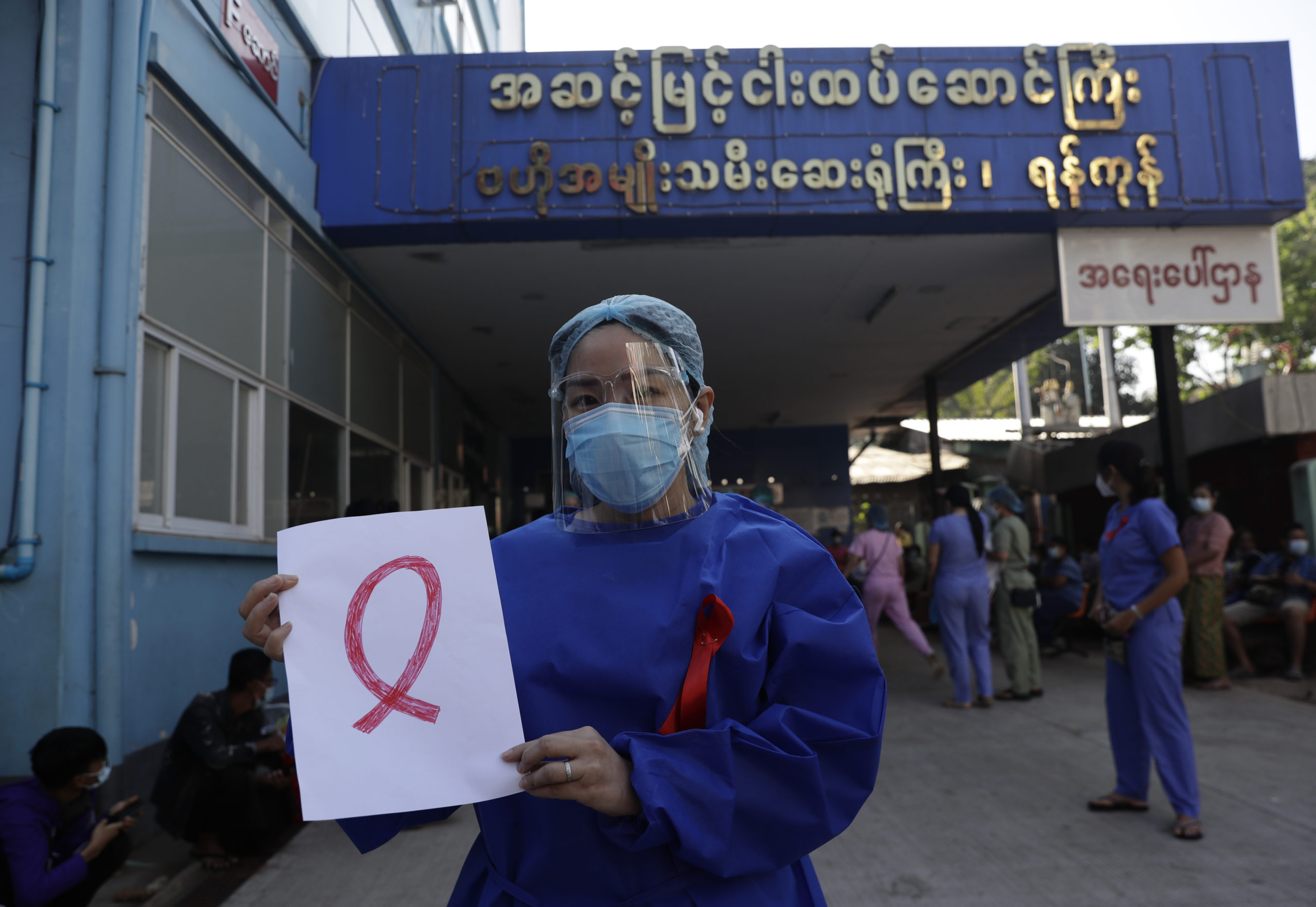It was on January 30 that the Myanmar military snapped back at suggestions of an imminent coup, accusing the media of taking the comments of Commander-in-Chief Min Aung Hlaing out of context.
Less than 48 hours later, State Counsellor Aung San Suu Kyi and President Win Myint, along with other officials, would be rounded up in early morning raids, as Myanmar’s decade-long dalliance with democracy came to an abrupt end.
It was a move that, perhaps unsurprisingly, caught many observers off guard – among them UN Special Rapporteur on human rights in Myanmar Tom Andrews.
“Never ask me for my predictions. Or if I make a prediction, just assume it’s going to be the opposite,” the former US Congressman told the Globe from Washington DC. “I assured colleagues and friends over the weekend that I didn’t think it [a coup] was going to happen.”
He pointed to the already-insurmountable position of the military in Burmese politics and wider society as behind his surprise.
“The military wrote the [2008] constitution that they overthrew. That constitution provided them with enormous power. They had complete control of key ministries, they made sure that 25% of parliament was appointed by them, they had enormous wealth,” he said.
In his role less than a year, few would have anticipated the UN Human Rights Council-appointed independent human rights expert, tasked with monitoring and documenting abuses across the country, would face such a mammoth challenge so soon.
His predecessor, South Korean developmental psychologist Yanghee Lee, was banned from the country in December 2017, three months after a genocidal military campaign against the Rohingya minority group began. Myanmar officials justified the decision by taking umbrance with what they labelled Lee’s biased and unfair assessments in her end-of-mission statement in July of that year.
But Lee told the Globe that assurances were made that officials would re-engage with the mandate once she vacated her post in 2020 after six years. Now, as the country’s democratically elected government is toppled and a military junta responsible for rampant rights abuses across the country assumes power, Andrews’ mandate looks set to face similar, if not higher, obstacles to those confronted by his predecessor.
“It will be very difficult for Tom Andrews, my heart goes out to him,” Lee said. “They shut the door on me in 2017, they literally declared me persona non grata. Today, there is another person, but they still have not opened the door to him yet – which was a big mistake by Aung San Suu Kyi. Now [after the coup] I don’t think he will have access.”

Having taken up his mandate in May last year, even before this latest upheaval Andrews says the pandemic had prevented him from visiting the country in an official capacity. The government, he said, cited concerns over the virus as they’ve denied him access, but he’s been in touch with civil society leaders from a distance.
“In terms of getting access to the country, I’ve not been able to physically be there. But I’ve been in regular touch with people in the country, I’ve been getting briefed on a regular basis, fully apprised of issues and concerns,” he said. “It’s extraordinary the extent to which people have been willing to provide me with information, analysis, testimony – some even having to travel considerable distances to find internet access.”
Maybe as a fig leaf, they might give him access. But look, I had access during Thein Sein’s government, and it’s heavily regulated – where you can go and who you can meet
And while perhaps a moot point now after the weekend’s events, Andrews also spoke of positive signs within the government in the initial months of his role.
“There were some signals and signs that issues like human rights were being taken more seriously, that there were questions being raised by parliamentarians” he said. “We had been discussing setting up a series of online, virtual meetings with the government on a more systematic basis while I waited to get into the country. Of course, those are not going to happen, those I was going to meet with are no longer in their positions.”
Even if, against all odds, Andrews were to be granted access as things settle in the coming months, for Lee, this comes with significant caveats – caveats that only become more pressing under what looks set to be at least a year of brutal military rule.
“Maybe as a fig leaf, they might give him access. But look, I had access during Thein Sein’s government [2011-16], and it’s heavily regulated – where you can go and who you can meet,” she said.
“And those people who you do meet, there were definitely reprisals on them. We’re going there to do good work, but at the end of the day, sometimes there is harm that is brought on to the people that engage with us.”

Now, like those within the country enduring sporadic connectivity and blackouts, Andrew’s faces a dearth of information about events unfolding in city streets or behind the scenes in the halls of Naypyidaw. Once open channels of communication are now closed, with his team scrambling for any information from within the country that they can obtain.
“We’re trying to get as much information as possible of what’s going on. You may know more than we do, it’s an incredible situation,” he said. “I’m trying to speak with anybody and everybody that I can. I don’t want to comment on what conversations I’ve had, but we’re trying to get as much information as possible.”
While the UN Security Council stopped short of issuing a UK-drafted statement condemning the coup on February 2, stifled by permanent members China and Russia, Andrews sees a swift enactment of sanctions as the next crucial step.
“We’ve seen the first step, and that’s condemnation. But now we need to see the second step taken, and that’s action,” he said. “There’s a wide range of options for sanctions. And I think comprehensive sanctions are going to be important, we’re vetting and discussing what those options are.”
Whether the military will honour its pledge to hold elections after the state of emergency has elapsed in a year’s time, and a peaceful transfer of power occurs, Andrews was confident in his description of the coup as a “major setback for the country on all fronts”.
“Under these conditions, everyone is in danger,” he said. “We know what kind of impunity the military acted with when there was some kind of semblance of visibility. Take away that visibility and the danger increases exponentially.”


